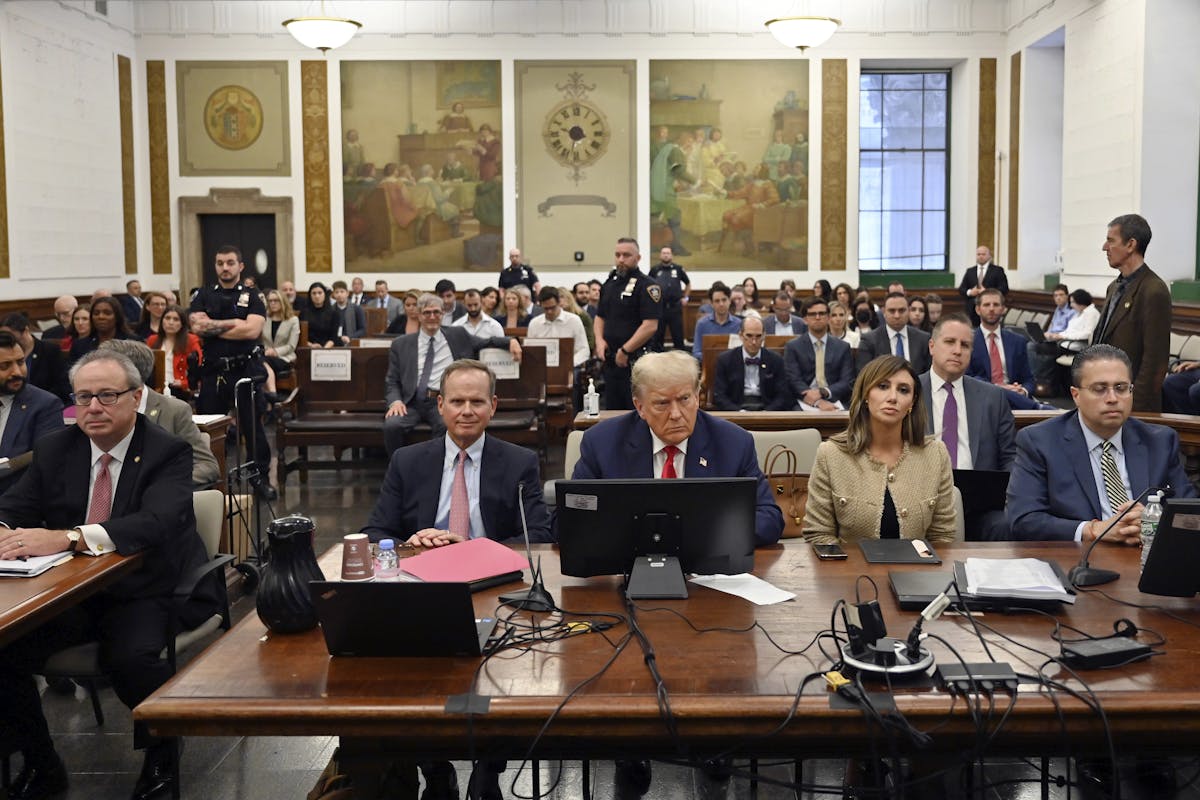Trump To Take the Stand in New York Civil Fraud Trial
Trump’s comportment on the stand could signal how he plans to act during his four looming criminal trials.

President Trump is expected to take the stand on Monday in the New York attorney general’s civil fraud lawsuit in the hope of keeping control of his Empire State businesses. The former president, who could also take the stand in any of his four criminal trials set to begin next year, has derided the trial as a farce.
Mr. Trump is set to defend himself from charges that he fraudulently inflated and deflated the value of his assets in order to boost his net worth and avoid paying taxes while also qualifying for better insurance and loan rates.
Mr. Trump, though, is likely to use the appearance as an opportunity to lambast his political enemies and paint the case as a political witch hunt meant to hamper his ability to win the presidency next year. He has attended most of the hearings at the Manhattan courtroom even though he is not required to be there, using the assembled press to sell the trial as a fraud in and of itself.
The presiding judge, Arthur Engoron, has already fined the former president $10,000 for making an out-of-courtroom comment about the jurist’s “biased” clerk.
Judge Engoron will decide what — if any — penalties the former president will face. In September, the jurist found that Mr. Trump and his adult sons did commit fraud in building their real estate empire in New York. The judge wrote that the Trump family had a “propensity to engage in persistent fraud,” referring to documents that “clearly contain fraudulent valuations.”
Ms. James is asking for a $250 million fine and that Mr. Trump and his family be barred from conducting business in the state.
The former president will take the stand following the testimony of his eldest son, Donald Jr. On Wednesday, the former first son sat in the courtroom to answer questions about his role in the Trump Organization’s businesses.
Mr. Trump Jr. said he had no knowledge of these inflations and deflations of value of their properties, even though as an executive at the Trump Organization he had signed off on all the paperwork. He claimed that the documents were solely the product of his accountants and the company’s chief financial officer, Allen Weisselberg, who has already served prison time for tax evasion and falsifying business records, among other offenses.
“I leave it to my accountants,” Mr. Trump Jr. said of the financial records. “I rely on their opinions and their assessments to make those decisions. They get paid millions of dollars, and they have the understanding.” He claimed that the accountants, not he, “had incredible intimate knowledge, and I relied on them.”
Another presidential son, Eric, took the stand on Thursday and was confronted with his email correspondence with a finance executive at the Trump Organization. Mr. Trump and the company’s controller, Jeff McConney, had discussed in multiple messages the company’s finances and valuations, which prosecutors argue made Mr. Trump fully aware of the fraud that was occurring.
Eric Trump pushed back, saying that the records he was discussing with Mr. McConney had nothing to do with the fraud trial. “I clearly understand that I sent notes to Jeff McConney,” he said. “I worked with him almost every day. … What seems to not be registering is the difference between sending things used for financials and sending things used for a statement of financial condition,” he added.

